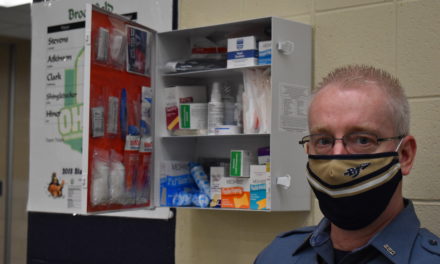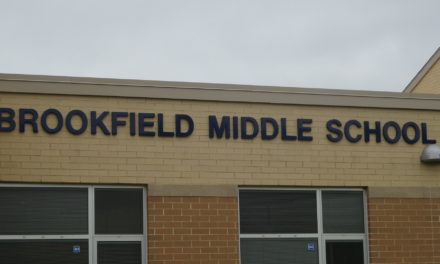Issue 1 seeks to create Crime Victims Bill of Rights
State ballot Issue 1 seeks to create an Ohio Crime Victims Bill of Rights based on California’s Marsy’s Law.
When a defendant has been arrested, it would require that victims be notified of each step in the legal process, have a say in plea discussions, be offered “reasonable protection” from the defendant or any of the defendant’s agents, and for criminal proceedings to progress “free from unreasonable delay.”
In California, victims are read their rights under Marsy’s Law, similar to the Miranda rights read to defendants.
Ohio Public Defender Tim Young, who is against Issue 1, says Ohio law already affords crime victims some of the rights proposed, including victim notification of a defendant’s release.
The referendum provisions would conflict with constitutional rights concerning double jeopardy and speedy trial, and could result in costly litigation, he said.
Attempts to obtain comments from the Trumbull County Prosecutor’s Office and Trumbull County Public Defender’s Office were not successful.
Issue 2 aims to reduce drug costs
Millions of dollars have been spent lobbying voters on the perceived merit or harm of state ballot Issue 2, but many people remain confused as to what the issue is about.
The referendum that would create the Ohio Drug Price Relief Act asks whether you want to require the state to pay no more for prescription drugs that what is paid by the U.S. Department of Veterans Affairs.
Proponents say drug companies are gouging consumers by upping prices for prescription drugs. When a state has to buy drugs, such as Ohio for its Medicare program, it is shifting millions of dollars that could be put into roads, public safety and other needs, they said.
Federal law requires the VA to get a 24-percent discount for prescriptions, while it negotiates other discounts, according to published reports.
Opponents say the ballot issue is unworkable because the VA does not disclose all of the contracts it has to buy drugs, and would negate discount agreements already in place between the state and drug companies.
“We are against Issue 2,” said Garry Mrozek, chief executive officer of Hometown Pharmacy, which has a Brookfield store.
He said the ballot issue, if approved, would make it harder for pharmacies to do business.
“That would be like me telling the Brookfield grocery store that, when you sell meat, even if you’re buying it for $1, you can only sell if for 70 cents. Pretty soon, they wouldn’t be selling meat anymore,” he said.
Some pharmacies could stop filling prescriptions paid for by Medicaid, Mrozek said. Those that don’t will have to raise prices to other customers to make up for the loss on Medicaid sales.
Hometown Pharmacy derives 8 to 10 percent of its business from state programs, he said.
“I don’t know who will be selling Medicaid prescriptions if I have to buy it for $1 and sell it for 50 cents,” Mrozek said. “We want to do right by our Medicaid customers. I can’t do it if they pass Issue 2.”
Setting the VA pricing benchmark is “going to take millions of dollars to figure that out,” Mrozek said.
The referendum also requires taxpayers to foot the bill for any legal challenges. “That’s unheard of,” Mrozek said.
Giant Eagle, which operates a pharmacy in Sparkle Market, Brookfield, was noncommittal on the referendum.
“We are in favor of any measure that helps deliver value for our customers,” Giant Eagle said in a statement. “We are monitoring ongoing discussions regarding the proposed Ohio Drug Relief Act, but are unable to speculate at this time on the initiative’s potential impact.”
For more information, go to the Ohio Secretary of State’s web site, or ballotpedia.org








